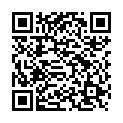|
|
|
| Module code: PdK-401 |
|
|
4U (4 hours per week) |
|
5 |
| Semester: 4 |
| Mandatory course: yes |
Language of instruction:
German |
Assessment:
Course work: graded
[updated 01.10.2020]
|
PdK-401 (P322-0141, P322-0142, P322-0143) Childhood Education, Bachelor, ASPO 01.10.2017
, semester 4, mandatory course
PdK-401 (P322-0141, P322-0142, P322-0143) Childhood Education, Bachelor, ASPO 01.10.2019
, semester 4, mandatory course
|
60 class hours (= 45 clock hours) over a 15-week period.
The total student study time is 150 hours (equivalent to 5 ECTS credits).
There are therefore 105 hours available for class preparation and follow-up work and exam preparation.
|
Recommended prerequisites (modules):
None.
|
Recommended as prerequisite for:
PdK-600 Bachelor Thesis
PdK-P7 Research-Oriented Internship
[updated 07.10.2025]
|
Module coordinator:
Prof. Dr. Tamara Marksteiner |
Lecturer: Prof. Dr. Tamara Marksteiner
[updated 02.09.2019]
|
Learning outcomes:
After successfully completing this course, students will be able to apply basic educational and social science research methods of data collection and analysis. They will be able to operationalize these research methods in a solution-oriented manner with regard to research questions related to fields of action. Students will be familiar with the specific challenges of conducting research with children and will be aware of the particularities of collecting data from groups of people directly involved, e.g. parents and educational staff.
[updated 02.12.2025]
|
Module content:
Quantitative Methods of Data Collection
- Historical, theoretical and methodological foundations; quality criteria
- Traditional and recent exemplary quantitative studies
- Methods of quantitative data collection
- The quantitative research process
- Ethical and data protection aspects in quantitative research
Qualitative Methods of Data Collection
- Historical, theoretical and methodological foundations; quality criteria
- Traditional and recent exemplary qualitative studies
- Methods of qualitative data collection
- The qualitative research process
- Ethical and data protection aspects in qualitative research
[updated 02.12.2025]
|
Teaching methods/Media:
- Literature studies (individual work)
- Exercises on data collection and evaluation methods
- Field/project work (in groups)
- Research supervision
- Presentation of results using different types of media
[updated 01.10.2020]
|
Recommended or required reading:
Recommended literature will be announced at the beginning of the course.
[updated 01.10.2020]
|


